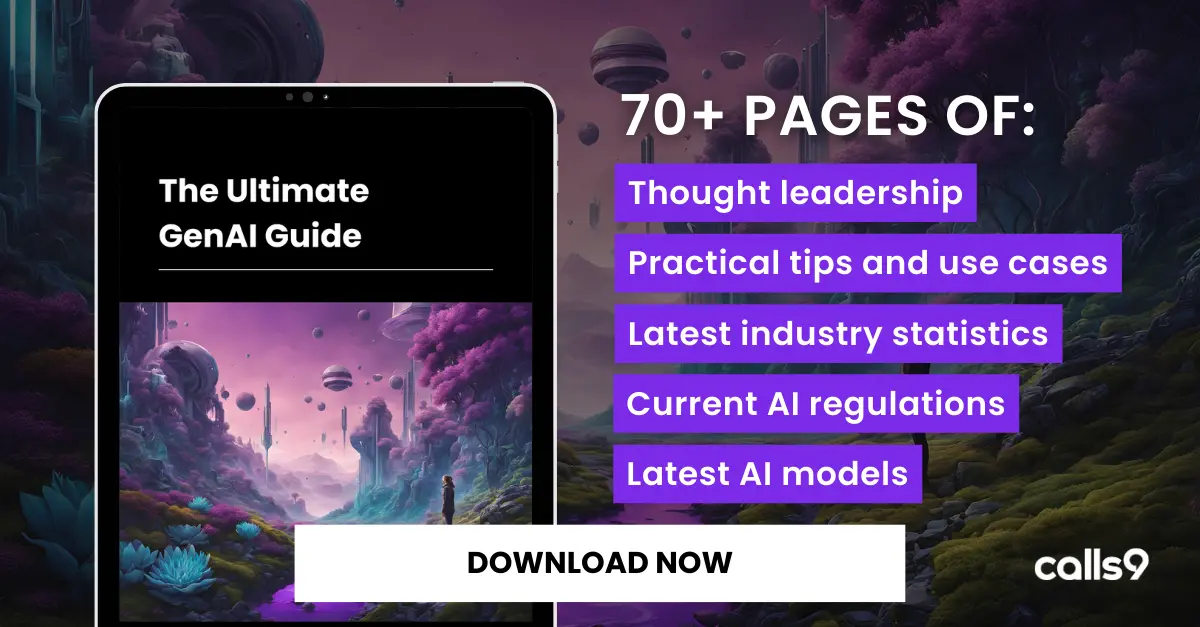Generative AI (GenAI) has moved from being a futuristic concept to a business imperative. Companies leading the way in GenAI adoption are unlocking significant advantages, from improved customer experiences to operational efficiencies and new revenue streams. However, merely adopting GenAI doesn’t guarantee success. The real differentiator lies in how organisations adopt, scale, and integrate GenAI into their business strategy.
Insights from the NTT DATA Global GenAI Report reveal key lessons from top-performing organisations that have successfully embedded GenAI into their operations. This article explores 9 lessons that set these leaders apart and offer a blueprint for others to follow.
1. High-Quality Data is the Foundation
GenAI’s effectiveness is only as good as the data it relies on. Companies that prioritise high-quality, diverse, and well-governed data achieve superior outcomes.
According to the report, 86% of Chief Data Officers (CDOs) acknowledge that AI models can reinforce biases if not properly managed, yet only 43% feel confident in their organisation’s ability to mitigate these risks.
Leading organisations ensure:
- Representative and diverse data to reduce bias.
- Factually verified information before generating insights.
- Strict access controls to prevent data misuse and inaccuracies.
Without these safeguards, organisations risk flawed AI outputs, leading to poor decision-making and reputational damage.
2. Start Small and Scale Based on Results
A common pitfall in GenAI adoption is attempting large-scale implementation without clear objectives. Top performers adopt a phased approach, starting with focused pilots, assessing results, and scaling based on measurable success.
This approach allows companies to:
- Identify quick wins before committing significant resources.
- Refine AI models based on real-world feedback.
- Support employee adaptation to AI-enhanced workflows.
Strategic, incremental scaling ensures ROI-driven expansion, reducing risk and preventing resource waste.
.webp)
3. Parallel Investment in IT is Crucial
GenAI success isn’t just about advanced algorithms—it requires strong IT infrastructure to deliver results. According to the report, 94% of top performers have increased their IT spending to support GenAI initiatives, compared to only 2% of low performers.
A well-structured IT environment ensures:
- Scalability to manage growing AI workloads.
- Security to mitigate cyber risks and ensure compliance.
- Cloud integration for seamless data flow and computational power.
Failure to modernise IT infrastructure creates bottlenecks, limiting GenAI’s full potential and business impact.
4. Measure the Right Outcomes
Defining success metrics for GenAI projects is crucial. Top-performing companies focus on outcomes that align with business goals, rather than just technical performance.
Key metrics include:
- Improved customer experience (and retention)
- Cost savings (including improved productivity)
- Improved employee experience (and retention)
- Community benefits (such as sustainability and environmental, social and governance goals)
- Business growth/improved revenue and more
By linking GenAI to tangible outcomes, these organisations ensure AI investments deliver meaningful business value.

5. Rigorous Internal Testing is Required
Before scaling GenAI solutions, leading organisations conduct extensive internal testing. This reduces risk and ensures reliability.
Top performers test their models for:
- Accuracy, efficiency, and fairness.
- Ethical implications of outputs.
- Real-world performance in customer-facing solutions.
Thorough testing builds trust and confidence in AI systems, safeguarding both operations and reputation.
6. Partnerships Accelerate Success
Even top organisations recognise that external expertise is critical for success. Collaborating with trusted AI partners accelerates time-to-market and reduces complexity.
Strategic partnerships provide:
- Pre-built models tailored to industry needs.
- Expert guidance on governance and scaling.
- End-to-end support, from strategy to implementation.
Working with experienced vendors allows organisations to focus on core business objectives while scaling GenAI initiatives efficiently.
7. AI Governance and Compliance are Non-Negotiable
With the rise of GenAI, ethics, security, and compliance have become paramount. The report shows that 89% of C-suite executives are concerned about security risks associated with GenAI, yet most agree that the potential rewards outweigh the risks.
Winning organisations prioritise:
- Data governance as the foundation for responsible GenAI.
- Clear guidelines on AI-generated content and its acceptable use.
- Compliance with privacy laws such as GDPR and emerging AI-specific regulations.
Robust governance frameworks help mitigate risks, ensuring ethical and secure AI adoption that builds trust with customers and regulators.

8. GenAI Should be Integrated into Business Strategy
GenAI isn’t a standalone initiative—it must be integrated into core business processes. According to the report, 54% of top performers plan to have GenAI embedded in at least half of their processes, compared to just 30% of other organisations.
This integration enables:
- Enhanced customer journeys with AI-driven personalisation.
- Productivity gains through AI-powered automation.
- Creation of new revenue streams and business models.
By aligning GenAI with broader goals, companies position themselves for sustained competitive advantage.
9. Continuous Learning and Cross-Team Collaboration
GenAI adoption cannot succeed in organisational silos. Top-performing companies promote knowledge-sharing and collaboration across departments.
They:
- Create “GenAI knowledge hubs” to share best practices.
- Foster cross-functional teams that blend data science, marketing, and operations expertise.
- Provide ongoing AI training to upskill employees.
This ensures AI expertise is distributed and innovation is maximised across the organisation.
Final Thoughts
GenAI is transforming industries, but its success depends on how organisations implement, govern, and scale AI solutions. The NTT DATA Global GenAI Report highlights the strategies that set top performers apart:
✅ Prioritising high-quality data and AI governance.
✅ Investing in IT infrastructure and talent.
✅ Aligning AI initiatives with business objectives.
✅ Measuring impact with tangible business outcomes.
For businesses ready to harness GenAI’s full potential, these lessons offer a blueprint for sustainable success.
Are you ready to take your GenAI strategy to the next level?

.webp)


